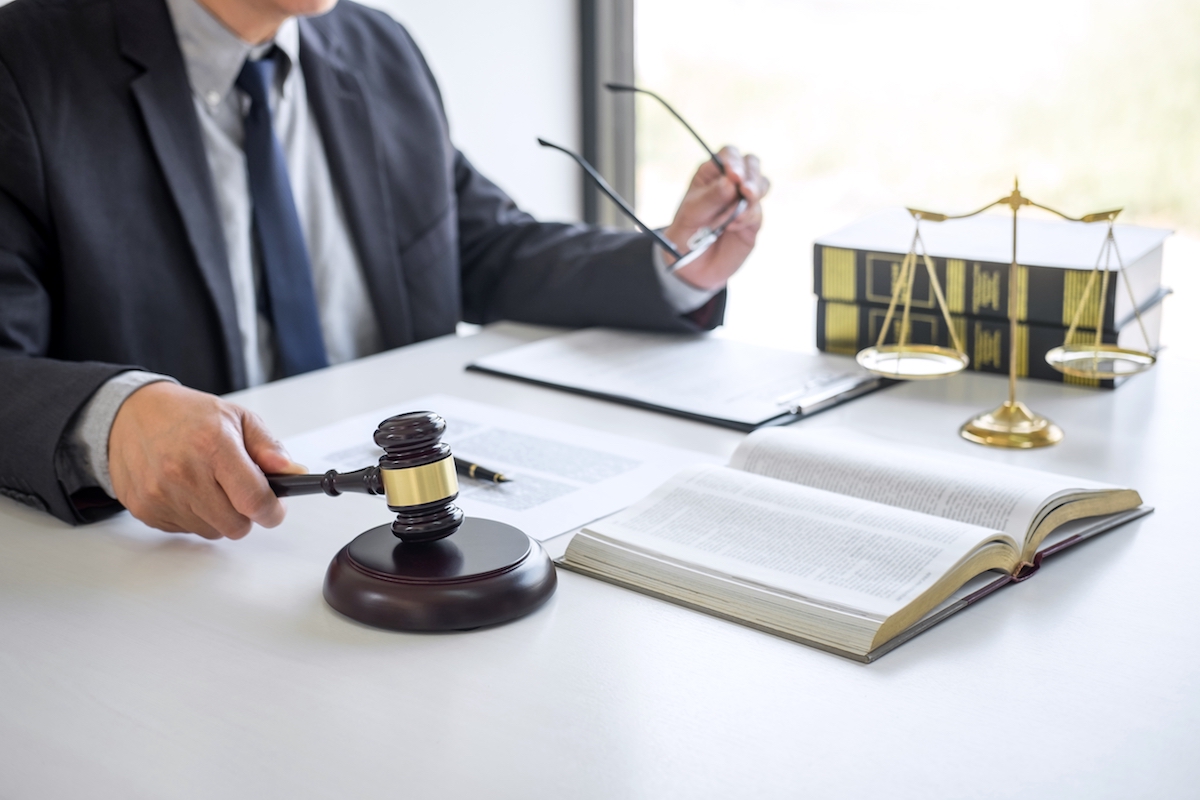
07 Jun What to Do If You Are Asked an Objectable Question During a Legal Deposition
What to When You Are Asked an Objectable Question During a Legal Deposition
A deposition can be a stressful experience, especially if you are being asked questions that are objectionable. From feeling uncomfortable and pressured to legal consequences, objectable questions can leave you feeling unsure about what to do. If you’re in the middle of a deposition and find yourself facing an objectionable question, it’s important to understand what your rights are so you don’t inadvertently incriminate yourself. Read on for tips on how to respond appropriately when faced with such questions during a legal deposition.

What to Do If You Are Asked an Objectable Question During a Legal Deposition
Legal depositions are a key part of the litigation process. As such, it is important to understand how to best answer questions during a deposition. While you may receive an objection question at some point, there are actions that can help ensure that your testimony remains accurate and respectful.
1. Stay Calm
First, take a deep breath and remain calm. It is natural to feel a certain amount of stress when testifying, but remember that you are there to answer questions and provide information. If you do receive an objectionable question, politely inform the attorney asking it that its language or content is not appropriate for the deposition.
2. Listen Closely
Second, listen carefully to the entirety of the question before attempting to answer it. The language or wording of a question can be important for understanding its meaning and determining if it is objectionable. For instance, if the attorney asks you to “verify” something, then do not answer with a simple yes or no; instead, explain what factual evidence you have that would support your verification.
3. Keep It Simple
Third, answer simply and succinctly. Do not go into too much detail, as your answer may open the door to further questions or objections. Stick to the facts and avoid injecting your own personal opinion. If you need more time to provide an appropriate response, then take a moment to compose yourself and think through your answer before speaking.
4. Ask to Rephrase
Finally, if it appears that the attorney is attempting to lead you to a certain answer, pause and ask them if this question can be rephrased. As soon as possible, make sure that you alert your own attorney to any objections or potential difficulties with a particular line of questioning so they have the opportunity to intervene on your behalf.
By following these steps, you can help ensure that the deposition is conducted in a fair and appropriate manner, and that your rights are upheld. Your attorney will be able to provide additional guidance if needed, so make sure to consult with them before agreeing to any questionable requests or answers. Ultimately, by being prepared and taking the necessary steps when asked an objectionable question during a legal deposition, you can protect yourself and ensure that any information you provide is accurate.
What Exactly Is a Legal Deposition?
A legal deposition is a sworn statement, often given in the form of written questions and answers, taken for use in court. Depositions are usually conducted by attorneys or other representatives of the parties involved in a lawsuit. The person providing the deposition testimony is known as the deponent and must answer questions under oath. Legal depositions serve important functions in a civil lawsuit, including gathering facts and information to support or challenge a party’s claims or allegations. Depositions can also help attorneys prepare for trial by providing an opportunity for a criminal law attorney to question witnesses beforehand. Additionally, depositions are often used to determine the credibility of witnesses and evidence. An example of this would be when a personal injury attorney questions one party about their side of the story in a car accident.
In some cases, the court may allow video deposition recordings to be used as evidence during trial. In addition to gathering information and assessing witnesses, legal depositions can help parties settle the dispute out of court. By getting an understanding of all sides’ positions and perspectives, the parties may be able to negotiate a resolution more efficiently than if they continued litigating the case in court. Ultimately, legal depositions are an important tool for attorneys to effectively prepare their cases and bring them to the best outcome possible.
Practice Makes Less Nervous
It is important to remember the deposition process can be stressful and intimidating. help alleviate some of the anxiety associated with being deposed, it may be beneficial to practice answering questions in advance, or even have a friend or family member role-play as an attorney. Additionally, some attorneys may offer mock deposition sessions to help get you ready for the real thing. Doing so can help you feel more confident and prepared when the time comes.
It is important to practice for a legal deposition by understanding the types of questions that may be asked, preparing answers in advance when possible, anticipating follow-up questions, and using effective communication techniques.
The types of questions posed during a deposition will depend on the case and its specifics. Generally speaking, though, many common questions deal with people’s names, dates, and places. It is important to be prepared for these questions so that you can accurately provide the information requested. Additionally, you may be asked more specific questions related to the events of the case or your background knowledge and understanding of it. Preparing answers in advance when possible will help ensure that you are able to respond quickly and accurately.
In addition to preparing for the types of questions you might be asked, it is also important to practice effective communication techniques. These include maintaining composure, speaking slowly and clearly, listening carefully, and being honest in your answers. Taking a few moments to pause before responding can help ensure that you provide accurate information and remain composed. Remember, your words have consequences and can be used against you in court. Staying calm and professional throughout the deposition will help ensure that you get through the questioning with minimal difficulty.
Know Your Rights
It is also important to be aware of your rights during a legal deposition. In general, you have the right to remain silent if necessary and object to any questions that are irrelevant or overly intrusive. If you do find yourself in a situation where an attorney is asking objectionable questions, it is important to stay calm and politely object.
The best way to object is by stating something like, “I’m sorry, I don’t think that question is relevant to this case” or “I’m sorry, I do not feel comfortable answering that question.” It is important to remember to remain polite and professional when objecting, even if the other party does not.
If you are unable to properly assert yourself during a legal deposition, it may be beneficial to enlist the help of an attorney with experience in such matters. An attorney can help you understand the scope of permissible questions and will be able to better protect your rights in a legal setting.
Additionally, if an objectionable question is asked during a deposition and answered, it does not necessarily mean that the answer will be admissible in court. Ultimately, it is up to the judge to determine whether or not the question and answer are relevant to the case.
FAQs
What is jury duty?
Jury duty is a civic responsibility in which citizens are randomly selected from the community to serve on a jury that hears criminal and civil trials.
How can I find a good lawyer?
The first step is to research your legal issue and determine what type of lawyer you need, such as a traffic ticket lawyer or a family lawyer. You can then research or ask your local bar association for referrals.






